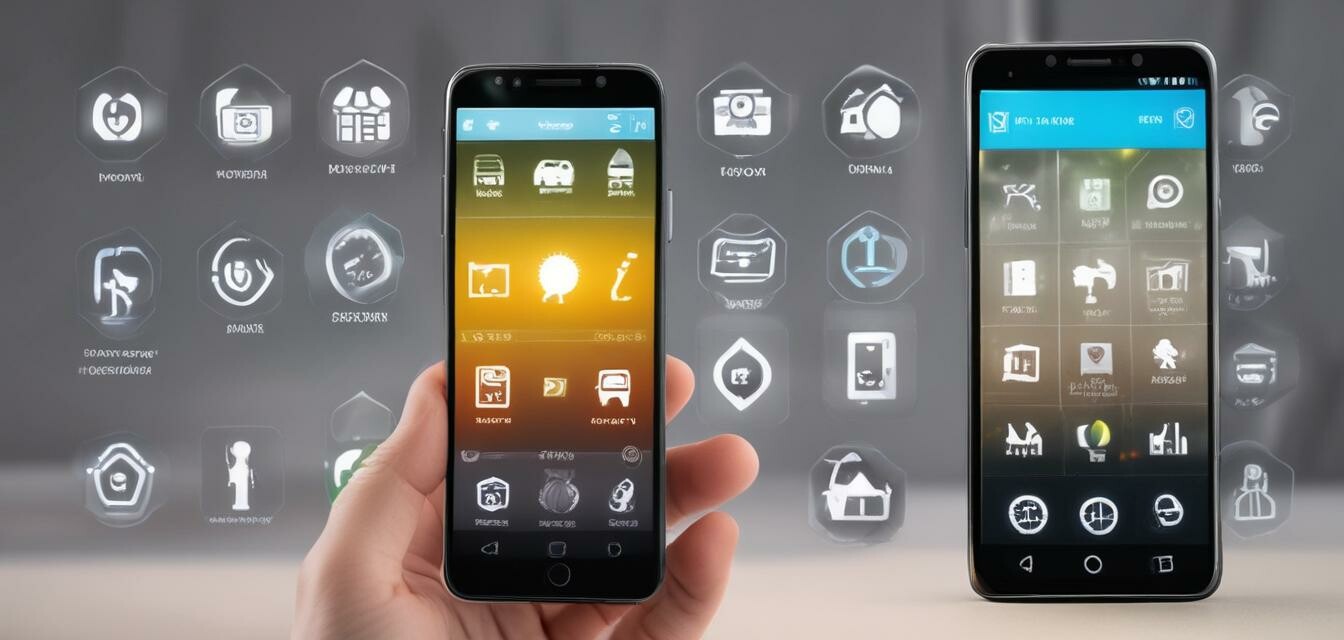
Smart home integration: Apps for ultimate control
Key Takeaways
- Smart home integration apps provide centralized control for multiple devices.
- Features like automation, scheduling, and remote access enhance convenience.
- Compatibility with voice assistants expands functionality.
- Security and customization options are critical for smart home setups.
In today's fast-paced world, managing your smart home devices effectively can make life easier and your home more secure. With the right apps, you can control everything from lighting and climate control to security systems, all from the convenience of your smartphone. Let’s explore the best apps available for smart home integration that can help you achieve ultimate control over your home.
Why use smart home integration apps?
Smart home integration apps are essential for anyone looking to simplify their life through technology. Here are some reasons why:
- Centralized Control: Manage multiple devices from one platform, eliminating the need to switch between different apps.
- Automation and Scheduling: Set routines to automate daily tasks, such as adjusting the thermostat or turning off lights.
- Enhanced Security: Monitor your home remotely and receive instant alerts if something unusual occurs.
- Energy Efficiency: Optimize energy usage by scheduling devices to operate only when needed, which can lead to cost savings.
Top smart home integration apps
Below is a list of some of the most popular smart home integration apps that you might consider:
| App Name | Compatibility | Key Features |
|---|---|---|
| Google Home | Google Assistant, Nest, and various third-party devices | Voice control, routines, and device grouping |
| Amazon Alexa | Echo devices and various smart gadgets | Voice commands, smart home routines, and skills |
| Apple HomeKit | Apple devices and HomeKit compatible peripherals | Siri integration, automation, and remote access |
| Samsung SmartThings | Wide range of devices including lights, locks, and sensors | Device automation, customization, and security monitoring |
| IFTTT | Numerous apps and devices | Custom applets for automating tasks |
Choosing the right app for your needs
When selecting a smart home integration app, consider the following factors:
- Compatibility: Ensure the app works with your existing devices.
- User Interface: Choose an app that is easy to navigate and user-friendly.
- Features: Look for features that suit your lifestyle, such as automation options and remote access capabilities.
- Customer Support: Reliable customer support can make a big difference, especially if you encounter issues.
Integrating voice control
Many smart home integration apps support voice assistants like Alexa, Google Assistant, and Siri, allowing for hands-free control. This integration not only improves convenience but also enhances accessibility. For a more detailed look at these voice-controlled systems, feel free to check out our articles on voice-controlled assistants.
Security considerations
Your smart home is only as secure as the apps managing it. Here are some security tips to keep in mind:
- Use strong, unique passwords for your accounts.
- Enable two-factor authentication whenever possible.
- Regularly update your apps and devices to fix any vulnerabilities.
- Review your device permissions periodically to ensure they align with your security needs.
Conclusion
Smart home integration apps play a key role in managing your home's technology efficiently. By using the right app, you can enjoy a seamless smart home experience that enhances both convenience and security. Don’t forget to explore other essential smart home products to complement your devices and start transforming your living space into a smarter, more efficient environment. For additional tips and ideas, check our blog on smart home decor tips and ideas.
Pros
- Centralized management of devices
- Increased security and efficiency
- User-friendly interfaces
Cons
- Compatibility issues between brands
- Privacy concerns with data collection
- Dependency on internet connectivity